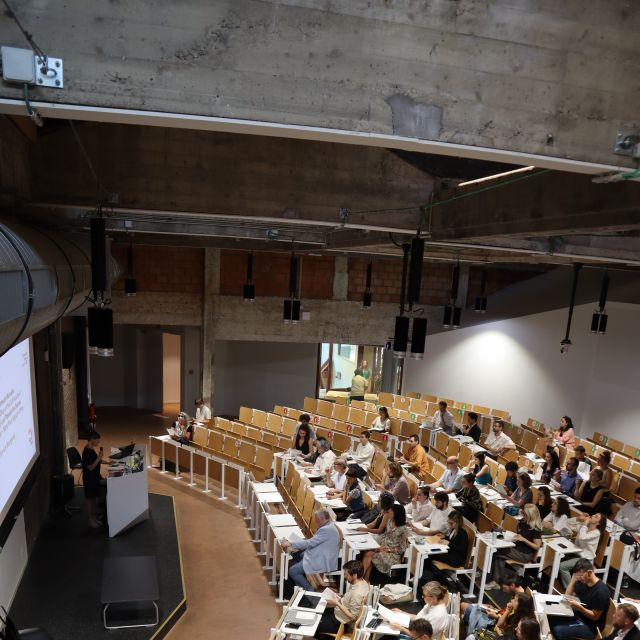We are deeply honoured to confirm the presence at the symposium of four leading experts from across Europe engaged in contemporary rural issues as scholars, researchers, and artists.
Katy Fox
Dr Katy Fox is an anthropologist, ecosocial designer, and teacher with a strong interest in collapse, transformation and resilience. She has worked extensively at the intersection of rural and urban systems.
She has researched social change in rural Romania, and contributed to initiatives such as the Äerdschëff project and the Ferme du Bout du Monde, promoting permaculture, low-tech solutions, and community resilience. Katy currently chairs Äerdschëff asbl and engages in applied research, training, and educational innovation to drive systemic change.
Fernando Garcia-Dory
Fernando García-Dory ́s work engages the relationship between culture and nature, as manifested in multiple contexts, from landscape and the rural, to desires and expectations in relation to identity, crisis, utopia and social change. Interested in the harmonic complexity of biological forms and processes, his work addresses connections and cooperation, from microorganisms to social systems, and from traditional art languages drawing to collaborative agro-ecological projects and actions. He studied Fine Arts and Rural Sociology, and is preparing his PhD on Art and Agroecology.
INLAND is a collaborative agency started in 2009 providing a platform for diverse actors engaged in agricultural, social, and cultural production. During its first stage (2010 – 2013) and taking Spain as an initial case study, INLAND was engaged with artistic production in twenty-two villages across the country, nationwide exhibitions and presentations, and an international conference. This was followed by a period of reflection and evaluation, launching study groups on art and ecology, and a series of publications. Today INLAND functions as a collective focused on land-based collaborations and economies, and communities-of-practice as a substrate for post-contemporary art and cultural forms.
Michael Woods
Michael Woods is Professor of Geography at Aberystwyth University in Wales, UK, and Co-Director of the Wales Institute of Social and Economic Research and Data (WISERD). His research focuses on the global countryside, rural politics and spatial justice.
He has led several large projects including Rural-Spatial-Justice, on rural discontent and disruptive politics; GLOBAL-RURAL, on globalisation and the countryside; and the Rural Wales Local Policy Innovation Partnership. He was formerly editor of the Journal of Rural Studies and is author of Rural (2011) and Rural Geography (2005).
Guida Marques
Guida Marques (1986), a neo-rural since 2017, lives in the village of Relvas, in Serra do Açor, Arganil, in the middle of nowhere —which is the center of everything. She holds a Master’s degree in Multimedia Art - Performance/Installation from the Faculty of Fine Arts of Lisbon (2019), a Master’s degree in Architecture from the University of Coimbra (2011), and Agriculture from the school of life. She is an activist in the defense of ecosystems, traditional architecture, and ancient traditions, and is actively involved in local politics, being part of the executive board of the Parish Council, the Baldios (Common Land Association), and the Village Committee. Additionally, she is a member of the Trust Collective Cultural Association, a space for artistic residencies and cultural mediation in Barril de Alva, Arganil, and is also part of Coletivo Barda, based in the village of Cepos, Arganil. This collective comprises both local and non-local artists working in mixed-media.
She worked as an architect in Lisbon from 2012 to 2015, engaging in community projects in priority intervention neighbourhoods, and participated in the Portuguese representation at the Venice Architecture Biennale in 2023. One of her main objectives has been fostering community bonds and building the future, creating performances/installations that focus on the relationship between body/place/memory. She participated in the MANIFESTA 12 Biennale of Contemporary Art. Highlights of her work include collaborations with Tiago Vieira at Latoaria from 2013 to 2016 and with Vânia Rovisco in Reacting to Time in 2014.



